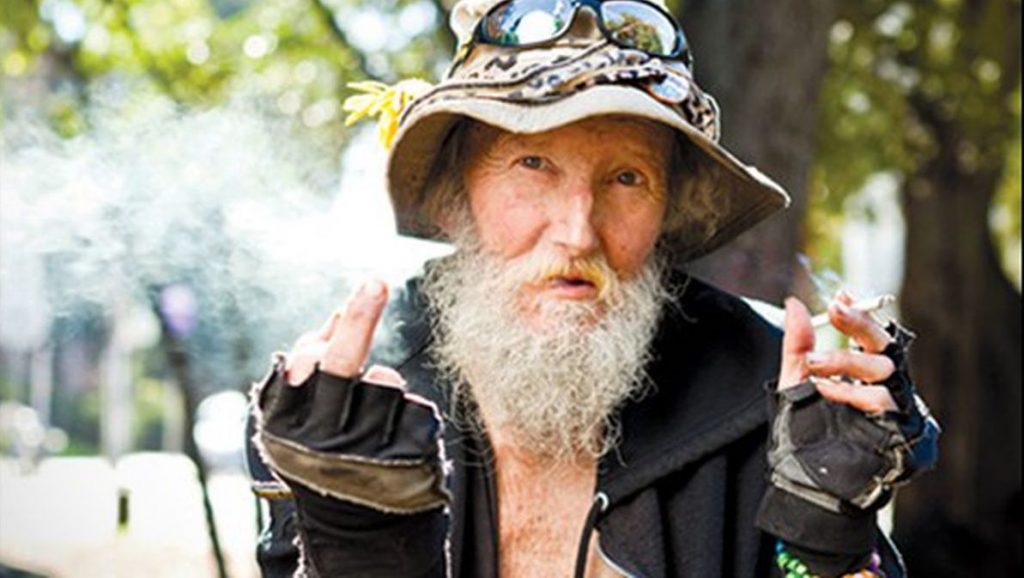Hate Man, former New York Times reporter-turned-legend of the Berkeley street scene, died four years ago on April 2.

It’s hard to believe it’s been four years since Hate Man croaked in 2017. But his effect lives on. People met at Hate Camp who went on to become lifelong friends. People met at Hate Camp and fell in love and got married and are still together to this day and had babies who are now adults. One of the endearing things about Hate Man was, he had a good sense of humor, and on some levels he didn’t take himself too seriously. He was well aware of how ridiculous and absurd he could look to some people—this old guy in his crazy garb yelling at the world, “Fuck you I hate your guts!” And when people laughed at him, he would usually just laugh along. He even played up that angle as a defense mechanism—the court jester who gets away with expressing heretical notions by playing the fool — preferring people laughing at him to attacking him (and more than a few people did physically attack Hate Man over the years). And he referred to his evolution from normal citizen to Hate Man as “nutting up.”
But on other levels Hate Man took his trip very seriously. He was quite proud that his Wikipedia page (www.en.m.wikipedia.org/wiki/Hate_Man) listed him as “American Philosopher” (as opposed to “Eccentric Street Person”). And he even had a Messianic bent to a certain degree. For example he often compared himself to Jesus: “Jesus took humanity part way there. But I believe I’ve come up with the final step that takes us all the way there with my philosophy of Oppositionality.” And he truly believed he had come up with the final piece of the puzzle that “put it all together” and answered the ultimate questions of human existence. Hate Man firmly believed that one day the world would catch up with him, and that his philosophy would be practiced on a world-wide scale.
Hate Man was ever-eager to make converts to his way of living, and did his fair share of proselytizing over the years, to anyone who might be willing to listen to his schtick (I heard his rap countless times over the years when he had an interested listener—it was like a tape-player in his head that he eagerly replayed, word-for-word from start to finish, as he explained the evolution of his philosophy). At the peak of his influence he probably had a dozen people who could be described as devotees, or followers, who emulated his practices, his mannerisms, and belief system in their day-to-day life. As well as hundreds more who would go along with it while they were hanging out at Hate Camp. More than a few people over the years would accuse Hate Man of being a “cult leader” who was “brainwashing” people. Especially during the years when he hung out on the Berkeley campus as a quasi-guru figure, where he could come off as “Socrates corrupting the youth of Athens”—a comparison he was probably flattered by.
But to his credit, Hate Man was never over-bearing, and he never forced his outlook on people who weren’t interested in hearing it. And I should add that most of the people who were deeply affected by, and influenced by, Hate Man’s philosophy over the years, seemed to have largely benefited from the experience. And his saving grace, like I said, was that he never took himself too seriously past a certain point. He was always willing to accept the possibility that he might be wrong (so many people lack that gene) and that the whole Hate Man trip might in fact be “nutty” or delusional. He never lost that little twinkle in his eye, like it all could just be a lark, an experiment in living, a bit of nutty mischief for the helluvit. Hate Man.
